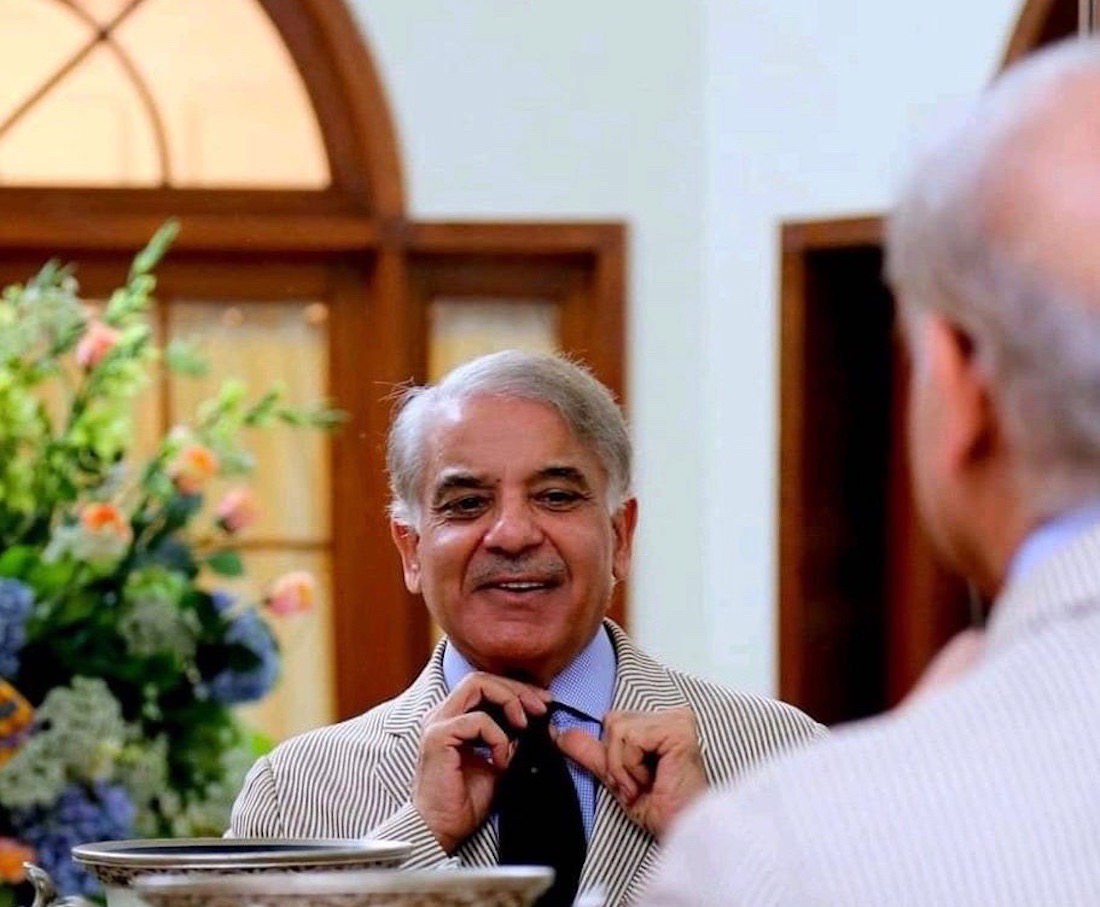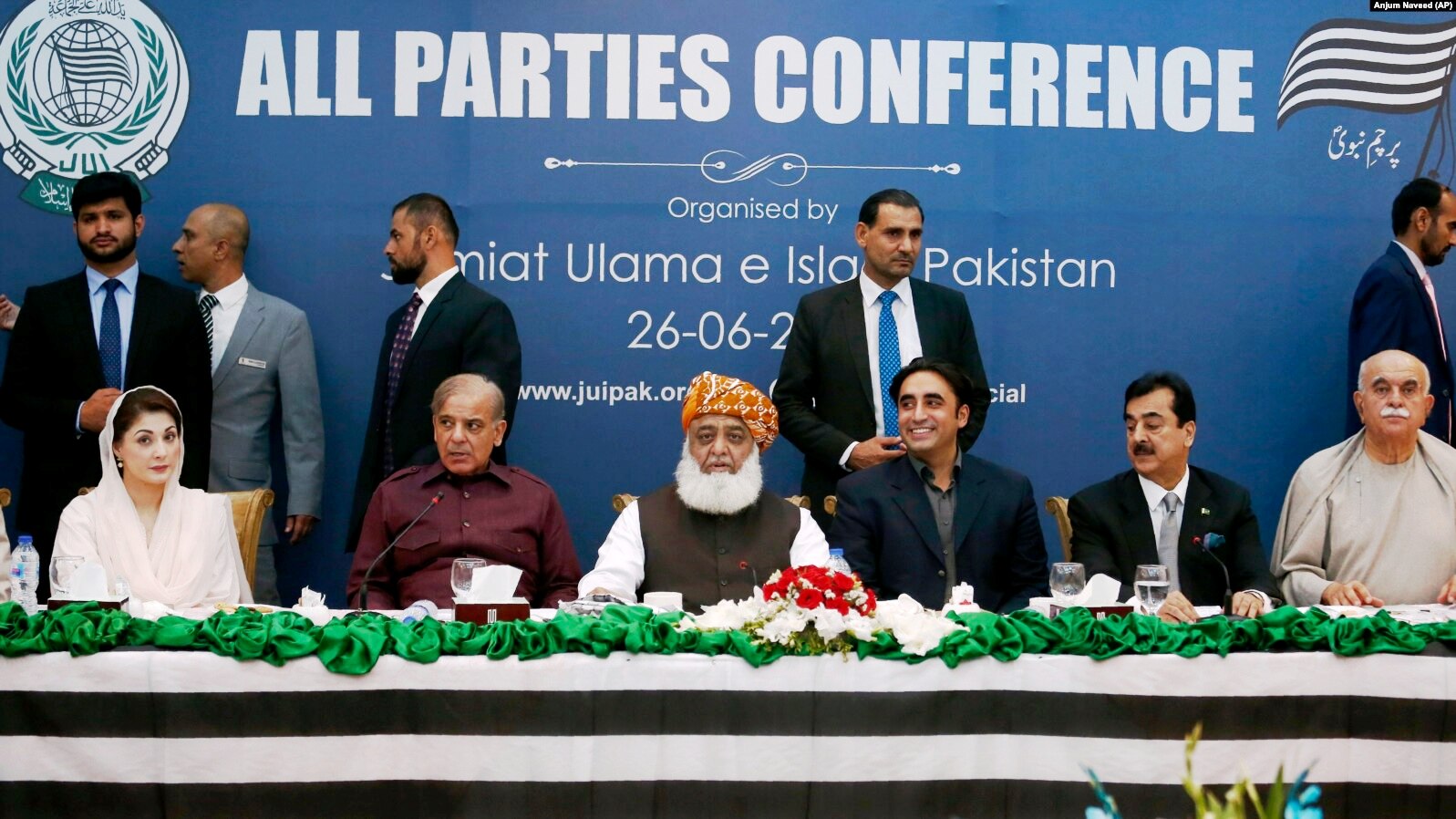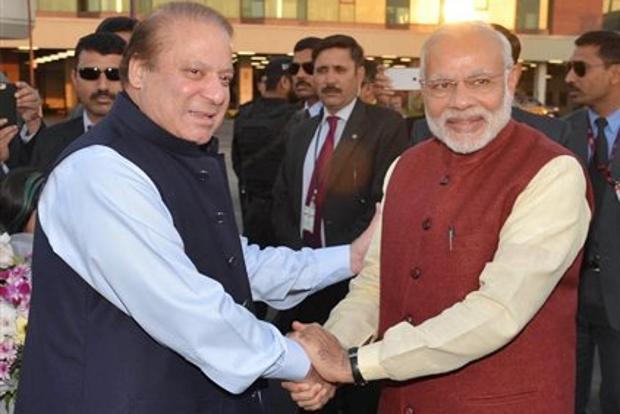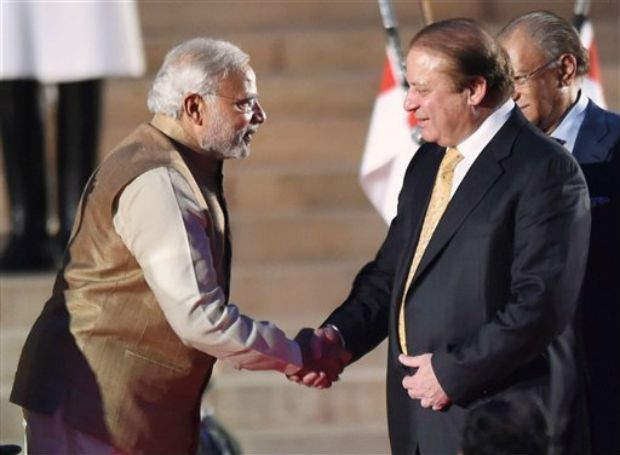With inflation at its historic high, a crippling debt to manage and a country polarised at ground zero, the new regime that replaced Imran Khan Government has its job cut out with managing stability on top. However, the hopes are that the regime change might herald a thaw in the cold war between India and Pakistan, reports Masood Hussain

After curtains fell on the weeklong power play with Supreme Court’s intervention, the election of Shehbaz Sharif as Imran Khan’s successor did not dispel the impression that Pakistan is politically unstable and economically in turmoil. These tensions are a key factor on this side of the Line of Control (LoC) for the people, living in border areas, hoping the spillover should not impact them.
Congratulations to H. E. Mian Muhammad Shehbaz Sharif on his election as the Prime Minister of Pakistan. India desires peace and stability in a region free of terror, so that we can focus on our development challenges and ensure the well-being and prosperity of our people.
— Narendra Modi (@narendramodi) April 11, 2022
Politicians on both sides of the Redcliff divide routinely use Kashmir for achieving their goals. After getting elected, Shehbaz in his first speech also talked about Kashmir at a time when Prime Minister Narendra Modi greeted him for his new role in Pakistan politics.
“Neighbours are not a matter of choice; it is something we have to live with. Unfortunately, our relations with India could not improve in the past,” Shehbaz was quoted saying. “We want good relations with India, but peace cannot be discussed without resolution of the Kashmir.”
Shehbaz then went to the very old argument of linking Kashmir with the poverty in the region. “Why do we want to disadvantage our coming generations? Let’s decide the Kashmir issue in accordance with the desires of the Kashmiri people, and let’s end the conflict on both sides, create employment, progress and happiness,” he said. Shehbaz raked up Article 370 abrogation and insisted his country did not do any “serious diplomacy”.
Thank you Premier Narendra Modi for felicitations. Pakistan desires peaceful & cooperative ties with India. Peaceful settlement of outstanding disputes including Jammu & Kashmir is indispensable. Pakistan’s sacrifices in fighting terrorism are well-known. Let’s secure peace and.. https://t.co/0M1wxhhvjV
— Shehbaz Sharif (@CMShehbaz) April 12, 2022
“Congratulations to HE Mian Muhammad Shehbaz Sharif on his election as the Prime Minister of Pakistan. India desires peace and stability in a region free of terror so that we can focus on our development challenges and ensure the well-being and prosperity of our people,” Prime Minister, Modi tweeted. Shehbaz thanked him and responded: “Pakistan desires peaceful and cooperative ties with India. A peaceful settlement of outstanding disputes, including J&K, is indispensable. Let’s secure peace and focus on the socio-economic development of our people.”

Key Challenges
Sharif has unprecedented challenges. Most of the West is distanced from Islamabad. The galloping inflation is at its peak and the jobs are invisible. The country has serious issues with the IMF where it continues to be on the grey list. The cost of living has gone through the roof. Islamabad needs US 14 billion a year to service its crippling debt burden of more than US $100 billion.
However, the biggest challenge the new regime is confronted with is that Pakistan is completely polarised between Imran Khan and the opposition’s rainbow coalition that ousted him from power. There are clear indications of the resurgence of militancy in some parts of Pakistan. Keeping the rag-tag alliance alive will be also a very difficult job for Shehbaz because the main players of the rainbow alliance have been against each other for most of their history.
At the individual level, the major challenge would be Shehbaz’s Sharif surname. Over the years, in three successive regimes, the business family was frequently accused of corruption. Imran Khan only made it into a campaign and gave it so much importance that he missed the governance thread. Sharif, a three-time Chief Minister of Punjab, Pakistan’s most populous province, moved to Islamabad as Prime Minister leaving Punjab to his son, Hamza.
Son and father have many things in common. Shehbaz, 70, has married five times. Currently, he has two wives – Nusrat and Tehmina Durani. He has divorced the other three – Aliya Honey, Nilofar Khosa, and Kulsoom Hai. He has two sons and three daughters with Nusrat and one daughter with Alia. It is being said that one of the Lahore bridges he built was dedicated to Honey, an erstwhile model, and another bridge he laid to make his wife’s home accessible.
Like father like son. Hamza, 48, the leader in Punjab’s poultry sector, has married thrice. Though he has never admitted to having married Ayesha Ahad Malik, he has on record two wives, Mehrunnisah and Rabia.
Corruption apart, Shehbaz is being seen as close to the army and a “hard-core realist”. The pro-army politician, unlike his brother, Shehbaz is being seen as a pro-development and business-friendly ruler who improved the infrastructure within Punjab in his three tenures.
Bilateral Relations
Regime changes in Islamabad are being seen as a problem in Jammu and Kashmir. Within hours after the takeover of Sharif Jr, tensions mounted in villages near the Intentional Border (IB) as the residents fear the rollback of the ceasefire. They read too much in Sharif’s Kashmir reference in his inaugural speech. India and Pakistan have had a ceasefire since Vajpayee’s days. It was revived and re-implemented with new vigour last winter.
Kashmir, it may be recalled is an open account for all sides. Using Kashmir does not require permission and it is such an emotive issue that it has built the political fortunes on either side of the divide. It can be used for elections, war, and more importantly for building hysteria. Sometimes, it is the only option for easing pressures and diverting attention. With Article 370 undone and the Jammu and Kashmir now existing in two Union Territories, Kashmir seemingly is again a ripe subject.
However, there are two factors that will play a major role in easing the India Pakistan cold war. Firstly, the Sharif family’s friendly relations with the ruling government and the business elite. These relations survived the test of time even during the Kargil war when the two countries were fighting each other.

In May 2014, Nawaz Sharif was invited to attend the oath ceremony of Narendra Modi as Prime Minister. A year later, Modi made an unscheduled visit to Sharif in Lahore when the family was busy with the wedding of a sibling. Currently, however, the diplomatic relations between the two sides are downgraded and direct trade is suspended.
Sharifs’ belong to Jati Umra village in Tarn Taran district and migrated to Lahore in 1932. In December 2013, Shehbaz visited India and also visited his village where he donated the land to the local gurdwara. Villagers made prayers after Shehbz was elevated to the top position. They said while the villagers were working at the family’s steel factories earlier, the family has kept doors open for the village youth to join their steel factories in Doha and Qatar. Sharifs’ own the Ittefaq Group of Companies. Their great grandfather Mian Muhhamad Baksh lays buried at Jati Umra. Shehbaz has named his home in Lahore Jati Umra.
Secondly, Islamabad will always be under pressure from the US and India to ensure its territory is not used in any sabotage in the region – from Kashmir to Kabul. At the conclusion of the Fourth Annual US-India 2+2 Ministerial Dialogue, the two countries have asked Pakistan to take “immediate, sustained, and irreversible action” to ensure that the territory under its control is not used for terrorist attacks.
Foreign policy, experts insist, would be dictated by the army. General Qamar Javed Bajwa has already insisted many times that it wishes to have peaceful relations. “With one-third of the world in the Gulf region and elsewhere involved in some sort of conflict and war, it is important that we keep the flames of fire away from our region,” Bajwa recent told Islamabad Security Dialogue. “Pakistan continues to believe in using dialogue and diplomacy to resolve all outstanding issues including the Kashmir dispute and is ready to move forward on this front if India agrees to do so.”
Apart from having strong relations with China, Pakistan’s ‘iron brother’, Bajwa, according to reports wants reconciliation with the US. Russia, for the time being, does not fit in the order. In talks with India, he wants the revival of the Musharraf formula.

“Since Pakistan’s concerns are its people, we want to put the money where the mouth is. Today, Pakistan stands at the crossroads of its economic and strategic goals. It has north-south connectivity [Pakistan to Afghanistan to Central Asian Republics and Russia]. We want to build connectivity from east to west [India to Iran]. This will increase trade and benefit Pakistan and the region. We want to move from geo-strategy to geo-economics and make Pakistan a modern and forward-looking country,” Bajwa said on April 2. “It is time [for India and Pakistan] to move on. Let us sit down and resolve our issues including Kashmir… We want development first.” He believes Pakistan will benefit if ties improve with India.
Reports appearing in the media suggest Shehbaz is planning to visit Beijing and Jeddah. Many strategic experts suggest that Shehbaz may not be able to interrupt the foreign policy till the next elections because he is the leader of a parliament where the entire opposition (read PTI) has resigned. Experts in India also hope that a change of guard will herald a diplomatic thaw between the two nuclear-armed neighbours.















